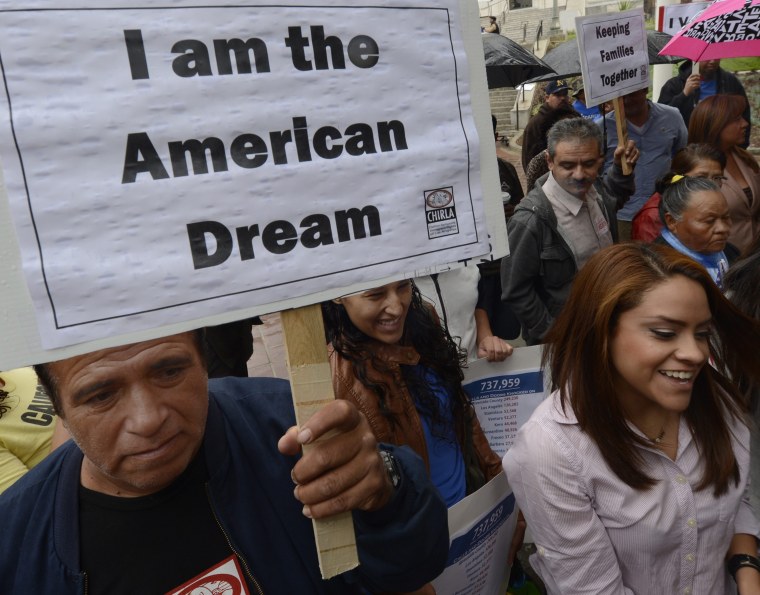A newly released Pew study shows that illegal immigration is now on the decline after a decade of increases. As of last year, an estimated 11.1 million illegal immigrants were living in the U.S.--a sizeable drop from 2007 when illegal immigration reached a peak of 12 million.
Pew's report is based on census data showing that fewer Mexican workers are coming to the U.S. This could be the result of an improving Mexican economy or the fact that many Mexican immigrants are deciding to return to their native country.
Asian immigrants exceeded Hispanic immigration levels for the first time since 1910. Asians and Hispanics are the two fastest-growing groups in America. Each population group has grown by more than 40 percent since 2000.
Republicans now realize that in order to win a presidential election they will have to broaden their base and reach out to more Latino and Asian voters. The voter gap revealed after the past election is staggering. Exit polls indicate that around 70 percent of Asian-American voters supported President Obama, as did 71 percent of Latinos. Republican anti-immigration stances have hurt the party. Recently, some House Republicans tried to temper their image by voting to allow foreign students to acquire green cards while in pursuit of advanced science and math degrees at American universities.
Groups advocating for legal status for illegal immigrants have cited President Obama's popularity with Asians and Latinos as a sign of wide support for an overhaul of immigration laws. Because Asian-Americans as a group do not strongly identify with either party, their votes could be up for grabs in 2016. Asian-Americans (like many voters) are concerned about jobs, education, and health care. They also favor big government, making them more likely to back a Democratic candidate.
